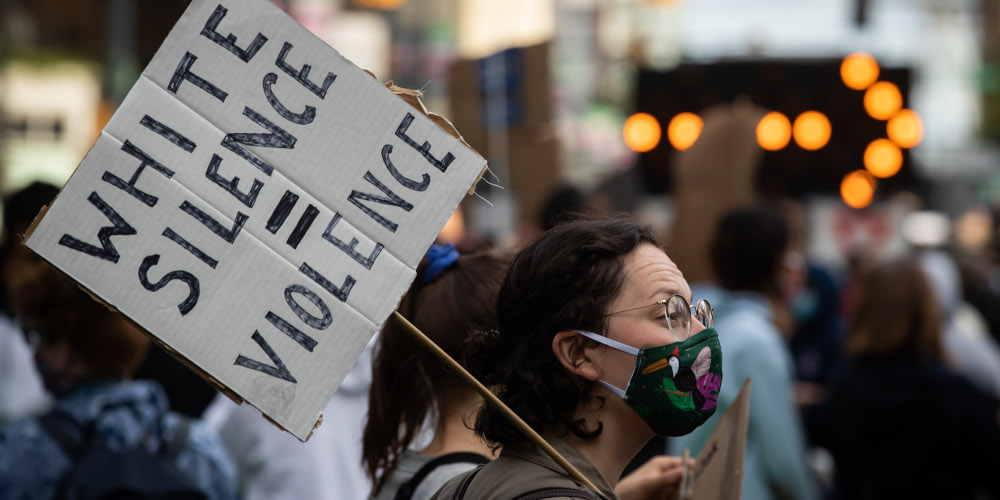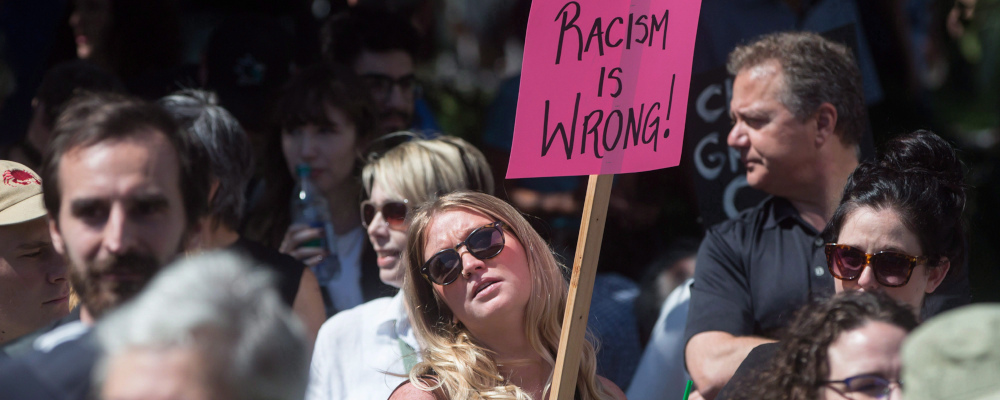British Columbia’s NDP government recently introduced their Anti-Racism Act, which sounds well-intentioned enough. After all, racism is an ugly reality that must be countered in Canada, as in all countries.
However, a closer look at the documentation supporting the Act reveals it is based on a divisive ideology that cynically characterizes as “naïve denialism” the idea that we ought to try to reduce racial tensions by building relationships across our differences.
Under the legislation, B.C.’s public bodies (ministries, hospitals, schools and so on) must set race-based hiring and advancement targets based on a regressive worldview that defines people by their identity instead of their ideas, by their appearance instead of their abilities, and by the colour of their skin instead of the content of their character.
The report on a public questionnaire conducted to inform the legislation dismisses any answers that didn’t fit its premise as “denialist,” even when those views were submitted by those identifying as “Indigenous, Black or people of colour” (54 percent of respondents self-identified as “IBPOC,” and 37 percent as “white”).

What’s more, these non-conforming views are seen as something to be taken apart and fixed. As the report notes, “denial of systemic racism was found across ethnicities, suggesting the need for a closer look at foundational drivers of culture, how those persist, and what can dismantle it.”
The report goes on to claim that, in response to the question: “What could the Province do to address systemic racism?” respondents were split between three actions: anti-racism training for public servants, resources for people harmed by systemic racism, and creating a provincial anti-racism strategy (each receiving 18 percent).
However, the actual top response is something ominously labelled “denialism.” Of respondents, 33 percent “demonstrated through their responses denial that racism existed,” far more than the number supporting any one of the top three actions identified. The report acknowledges that “there was a consistent theme of denial of systemic racism and racial trauma across all demographic groups.”
How the government defines such “denialism” is especially troubling.
One respondent suggested that “…what reduces racial tension and increases interpersonal harmony is promoting openness and people spending time with people who are different from themselves.” This is coded by the report’s authors as “denialism,” and sub-categorized as “naivete.”
Another stated “We are a multicultural society, with diverse populations, where everyone is celebrated. B.C. should focus on preventing and supporting people on the streets with real problems, and not made-up problems like systemic racism.” This is coded as “denialism,” sub-category: “anti-diversity.”
One immigrant’s perspective that “Racism is not an issue in Canada; I have experienced more discrimination in my country of origin than here” is coded as “general denialism.”
The vilification of views that emphasize togetherness, celebrate diversity, and see Canada as a relatively tolerant nation, is indicative of a pernicious cynicism on the part of this government that is already well-established across B.C.’s institutions.
As an example, one needn’t look further than the Vancouver Police Department’s race-based handcuff policy, according to which officers should consider a person’s “ethnicity, or whether they are part of other equity deserving groups” before applying handcuffs.
Many B.C. universities have hiring policies that entirely exclude applicants based on race, and race-segregated spaces have become common. SFU’s Black Student Centre is justified based on calls from students for “different spaces for students who are not white.”
My own child’s elementary school is plastered with government-produced posters offering “anti-racism reminders,” admonishing kindergartners that “If you are unaware of your privilege, you might be privileged,” and darkly warning that “Racism sometimes hides in politeness.”
And now, B.C.’s Anti-Racism Act will require all public bodies to set race-based recruitment and advancement targets to ensure “racialized individuals” are hired and promoted to senior levels. This is despite studies showing that, when it comes to income, education, occupations and test scores, several racialized groups are doing better than the white population.

While there are certainly populations that are doing worse than others and are thus deserving of special attention, many of the racialized groups targeted by these policies are already seeing well-earned success on their own merit. The legislation ignores this, dividing the British Columbians into oppressors (white people) and the oppressed (everyone else), regardless of real disparities within those groups.
(Interestingly, the government does not define the word “racialized” in the legislation, but UBC’s Equity and Inclusion Glossary defines “racialized people” as, essentially, anyone who is not white.
It’s not politically easy to oppose a carefully-labelled Anti-Racism Act. But, despite its nice-sounding title, it is grounded in a radical perspective that vilifies hope for harmony as naïve, the celebration of all cultures as anti-diversity, and appreciation of Canada’s tolerance as denialism.
If it’s serious about combatting hate, the B.C. government should stop trying to find it in bona fide sentiments like these and instead condemn the blatant hatred regularly spewed against the Jewish community in its own capital. (It won’t, though, because this issue doesn’t neatly fit its oppressor/oppressed binary).
Inclusion will never be achieved through exclusion, nor cohesion through segregation, nor harmony through resentment. With further entrenchment of this insidious ideology, we’ll be left more divided than ever.
Recommended for You

Laura David: Red pill, blue pill: Google has made its opening salvo in the AI-news war. What’s Canadian media’s next move?

The Notebook by Theo Argitis: Mark Carney’s first major tests

The Weekly Wrap: Trudeau left Canada in terrible fiscal shape—and now Carney’s on clean-up duty

Ben Woodfinden: Lament for an ‘elbows up’ nation




